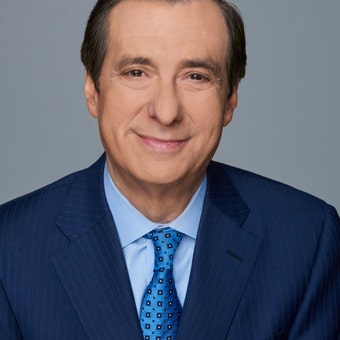Fox News Flash top headlines for June 16
Fox News Flash top headlines are here. Check out what's clicking on Foxnews.com.
It took almost a month, but Marjorie Taylor Greene has finally apologized for her offensive remarks in invoking the Holocaust.
Does the delay suggest a lack of sincerity? A cold political calculation? A belated realization that she had no choice?
I don’t want to sit in judgment. Even an overdue apology is welcome. But there has been a spate of sorry statements from people in public life lately, and how they are handled — and received — has become something of an art form.
Chuck Schumer, for instance, just apologized for using an offensive word, almost immediately after doing so. That bought him easy treatment from a press corps that already likes the Senate majority leader (far more than, say, Mitch McConnell).
I hasten to add that the two incidents are not even remotely comparable. The Republican congresswoman made her remarks to shock and provoke, which is her style. Schumer was being sympathetic to those he insulted with his linguistic blunder.
But the larger question is when we — the media, the politicos, the public — are willing to forgive, which often turns on how useful the offending party is as a political foil.
Greene, who has no real power as a freshman stripped of her committee seats by her own party, orchestrated her latest apology with a visit to the Holocaust Museum. She has had to take back a series of inflammatory statements, including her past belief in Q’Anon conspiracies.
What Greene said last month, about a House mask mandate, was even condemned by McConnell and Kevin McCarthy: "We can look back at a time in history where people were told to wear a gold star, and they were definitely treated like second class citizens, so much so that they were put in trains and taken to gas chambers in Nazi Germany. And this is exactly the type of abuse that Nancy Pelosi is talking about."
One of the cardinal rules of politics is to avoid scoring points with Nazi analogies.
At a Monday presser, the Georgia lawmaker told reporters: "The Holocaust is — there’s nothing comparable to it. It’s — it happened, and, you know, over six million Jewish people were murdered. More than that, there were not just Jewish people — Black people, Christians, all kinds of groups. Children. People that the Nazis didn’t believe were good enough or perfect enough…But there is no comparison to the Holocaust. And there are words that I have said, remarks that I have made, that I know are offensive, and for that, I want to apologize."
Critics weren’t having it. "It didn’t sound like it came from the heart," Democratic Rep. Steve Cohen told CNN.
Greene, by the way, would not apologize for also saying "Nazis were the National Socialist Party. Just like the Democrats are now a national socialist party." She simply reiterated her criticism of socialism.
THE MASSIVE LAW ENFORCEMENT FAILURE AT THE CAPITOL STILL OVERSHADOWED BY POLITICS
In Schumer’s case, he was on a podcast, posted Sunday, recalling his efforts as a state rep: "When I first was an assemblyman, they wanted to build a congregate living place for retarded children. The whole neighborhood was against it. These are harmless kids. They just needed some help."
The criticism of that word — "retarded" has long since been retired as horribly insulting to people with mental disabilities — prompted an apology Monday. But the senator didn’t bother to deliver it personally; his office put out a statement.
"For decades, Sen. Schumer has been an ardent champion for enlightened policy and full funding of services for people with intellectual and developmental disabilities," a spokesperson said. "He is sincerely sorry for his use of the outdated and hurtful language."
Schumer knew that personally pleading guilty to hurtful language would have drawn more attention to a mistake that largely flew under the media radar. Still, he didn’t waste any time in admitting he was wrong.
There are still reverberations from Jeffrey Toobin’s apology on CNN, which marked the network’s decision to bring him back as a legal analyst after nearly eight months off the air. The New Yorker fired Toobin for masturbating in front of colleagues during a Zoom call when he thought his camera was off.
Asked the Jay Leno question — "What the hell were you thinking?" — Toobin said what he did was "deeply moronic and indefensible," adding: "Above all, I am sorry to my wife and family, I am sorry to everyone on the Zoom call, I am sorry to my former colleagues at the New Yorker, I am sorry to my current and fortunately still colleagues at CNN."
Obviously he’s sorry for his colossal error in judgment, but many people aren’t buying it. Some are asking why CNN can’t find another legal analyst. Megyn Kelly says no woman who did anything close to the Zoom exposure would be allowed back on the air. And CNN’s Ana Navarro got ripped for saying Toobin didn’t sexually harass anyone.
In short, while CNN anchor Alisyn Camerota deserves credit for grilling her colleague, there is nothing Toobin could have said that would satisfy most of his critics.
The same goes for entertainer Chrissy Teigen, who just issued a groveling apology for a long history of mean tweets, including direct messages urging a teenage singer to kill herself. That’s beyond inexcusable, and Teigen doesn’t excuse herself: "Not a day, not a single moment has passed where I haven’t felt the crushing weight of regret for the things I’ve said in the past. As you know, a bunch of my old awful (awful, awful) tweets resurfaced. I’m truly ashamed of them."
She didn’t get much sympathy. Piers Morgan called her "a horrible human being…the worst kind of shameless, duplicitous woke celebrity." Turns out she had ripped Piers years ago as a piece of S and an A-hole.
CLICK HERE TO GET THE FOX NEWS APP
Finally, Lin-Manuel Miranda, who famously reimagined the Founding Fathers as Black in "Hamilton," is sorry for the casting in his new film "In the Heights." He was responding to criticism that his cast in the movie adaptation about the upper Manhattan neighborhood was too light-skinned.
"I hear that without sufficient dark-skinned Afro-Latino representation, the work feels extractive of the community we wanted so much to represent with pride and joy," Miranda says, adding: "In trying to paint a mosaic of this community, we fell short…I promise to do better in my future projects."
That’s the best kind of apology — unforced, candid and vowing to change.
For just about everyone else, an apology is just another tactic in an endless political and cultural war.
Howard Kurtz is a Fox News analyst and the host of "MediaBuzz"(Sundays 11 a.m.). He also hosts the MediaBuzzmeter podcast and is the author of "Media Madness: Donald Trump, The Press and the War Over the Truth." Follow him at @HowardKurtz. Click here for more information on Howard Kurtz.











































